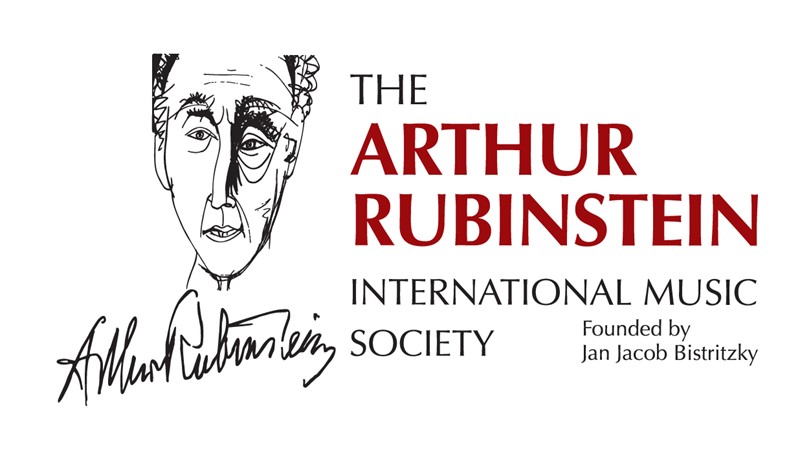Surfing the Rubinstein
SponsoredMonday, March 15, 2021
This year, everyone will be able to watch the Rubinstein Competition online, plus a few digital extras
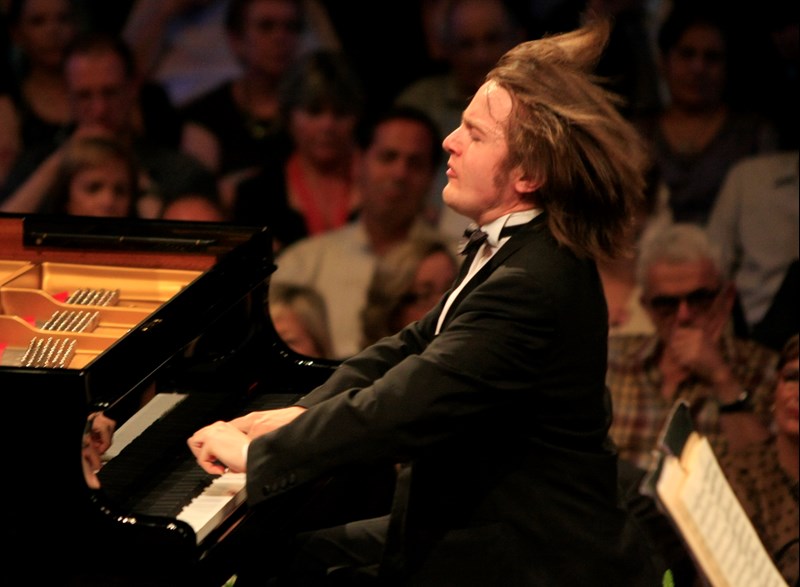
Daniil Trifonov (photo: Yaira Yasmin)
One should probably never compare a piano competition to the Pope - anyway not every Pope can play piano (though Pope Benedict XVI certainly does, as evidenced by a video doing the rounds on YouTube of him playing some Schubert, very creditably). But it is a well-known custom that, when selected for the Papacy, the cardinal of choice shows reluctance. The idea being that a great honour confers a heavy responsibility and that a humble attitude to the job is likely to result in more people being helped, more lives being touched. Well, indeed comparing the Pope to a piano competition is rather unusual and in many ways hardly apt, especially when that competition takes place in the world’s only Jewish state (though, true, the birthplace of Jesus), and yet it springs to mind. Because when the great pianist Arthur Rubinstein was asked by his friend Jan Jacob Bistritzky whether a piano competition in Israel might be started in his name, Rubinstein, ever modest, was reluctant. Once persuaded how many talented young musicians could be assisted by a contest empowered by his involvement, however, he committed and threw himself into supporting it, even serving as a judge in the competition’s first two editions.
And so was born the Arthur Rubinstein International Piano Masters Competition, commonly regarded as one of the four or five most important piano competitions in the world. From modesty, from reluctance but from a recognition that artists who have reached the pinnacle of their art and of their career can help. Simply - help. Although there is nothing simple about it, the creation and subsequent stagings of an international competition is a huge logistical challenge (not least in times of Covid19, of which more later) but from its first year, in 1974, the Rubinstein has succeeded.
The winner of those first finals in Tel Aviv was Emanuel Ax. Years later, he said, ‘After the Rubinstein...everything opened up for me, I was courted by one and all.’ Today, he is more specific. ‘In those days there were far fewer piano competitions. So every sizeable competition was an event. But in this case, to have Rubinstein involved? He was the premiere pianist in the world then, alongside Horowitz. Anything associated with Rubinstein would have been important, but that he was going to chair the jury made it even more so, and he brought other important jurors with him - Arturo Benedetti Michelangeli agreed, the only jury he had ever sat on, Guido Agosti. It was an immensely distinguished group of people.
‘And not only did winning the Rubinstein come with performance contracts, it actually offered a recording contract! That’s how I came to RCA, and RCA liked my first recording enough that they sent it to Eugene Ormandy, and he like it enough to bring me to record with the Philadelphia Orchestra and that just kept going.’
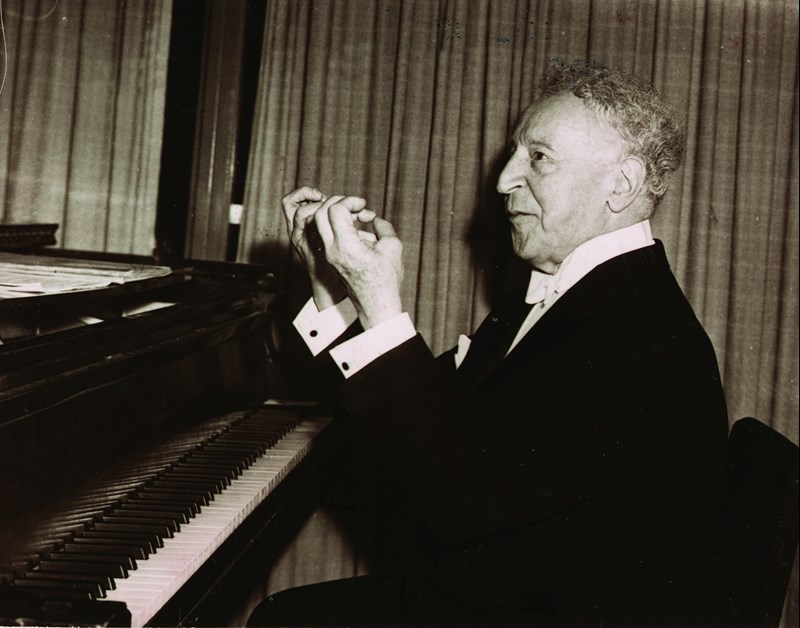
Arthur Rubinstein
Perhaps even more remarkable, Rubinstein himself maintained an interest in Ax after the younger man had won his competition, giving him some lessons when in New York. Ax remembers his cigars, his ‘grand presence, it was like being with royalty’, but also an absolute exactitude when it came to music. ‘I had always thought of Rubinstein as someone who did things in a very spontaneous, inspirational way, but actually he thought about everything in great detail. We went through the Ravel Valses nobles et sentimentales and he was meticulous, quizzing me about every note. He helped me arrive at the understanding that if you want to sound spontaneous, you have to spend a lot of time working things out! And if you sound academic it’s usually because you haven’t given a piece enough thought!’
Ax was followed by many more winners whose careers were propelled by ‘The Rubinstein’ (as it is now popularly known among pianists) - among them Igor Levitt, Daniil Trifonov, Kirill Gerstein, Gerhard Oppitz, Jeffrey Kahane, Boris Giltburg, Ian Hobson, Janina Fialkowska and Khatia Buniatishvili. In a world now not short of piano competitions, they all, when asked, seem to have very fond memories of this one in particular. ‘I remember the feeling that I had while playing in the Rubinstein Competition,’ Trifonov has said, ‘Immediately when I started playing on the stage I realised that there is a very positive energy from the audience, which is important for the artist to feel emotional support; this way the artist can transform and express with more freedom. This whole atmosphere is very friendly for the performer. (That) sets the performer’s mind (at rest) for more freedom in music-making.’
Friendliness was certainly evident this year at the traditional (closed) ceremony for the scheduling of the opening rounds. Meeting on Zoom, the 36 competitors from around the world were warmly welcomed by Artistic Director Ariel Cohen and Chairman of the Jury, Arie Vardi (the latter merrily recalling past years where competitors had, with furrowed brows - he demonstrated - tried to work out the psychological ramifications of whether to choose a particular slot). This year the organisers had arranged a colourful, digital spinning wheel - causing much amusement - its clicker stopping at a contestant’s name and that contestant being the next to select their spot in the running order. The atmosphere was collegial, the competitors smiling encouragingly at one another as they each had their turn to introduce themselves, say where they hailed from, and of course, pick their time. If one expects a level of tension and nervousness at each stage of a potentially career-making event, it soon dispersed.
‘It was always important to have a sense of community with the Rubinstein,’ says Cohen, who has been around the tri-annual competition since its second edition in 1977. ‘There was a warm atmosphere right from the beginning. In the early years, the contestants all stayed together in one particular hotel in the suburb of Ramat Aviv - it doesn’t exist anymore. And this hotel looked like a country club, with lovely grass lawns and a swimming pool and small cabins for the artists, and they would all socialise there. It felt like a kibbutz, albeit in the city! But it was that sort of feeling and they all loved it.
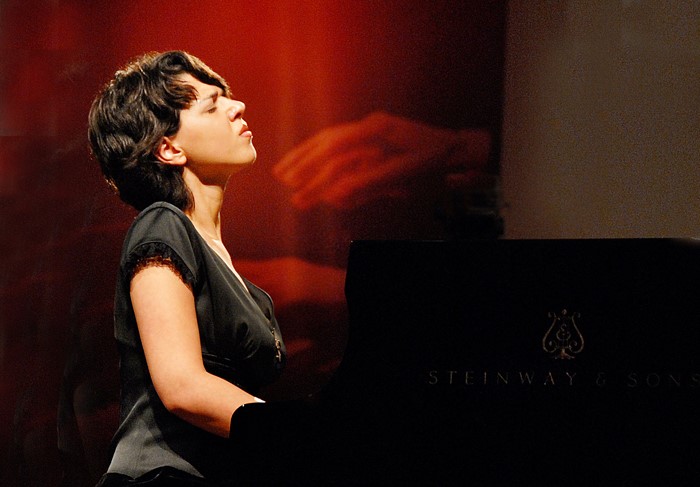
Khatia Buniatishvili (photo: Michael Cohen)
‘And we always had volunteers who would take care of the pianists. They would wait for them at the airport, take them to the hotels, drive them to sessions, sometimes they would host them at their own homes, and that contributed as well.
‘Meanwhile, the audiences were and are, I think, unique! Knowledgeable and extremely enthusiastic, the halls would be filled with piano teachers and fellow pianists and they were never shy to voice their opinions! They would sometimes almost fight about their ideas about who played what and how and why this or that should be played! They would make their love and support for some of the performances very well known. The other side of that is that sometimes if some of them didn’t agree with a jury’s decision they would shout their opinions loudly, right there in the hall! It might sound a bit scary, but in fact the feeling is much more, somehow, informal. We always tried to keep a formal distance between the competitors and the jury, but between the competitors and the audience it has always been very informal, very alive, very loving in fact.’ Emanuel Ax corroborates - ‘The audiences in Tel Aviv were incredibly well-versed in music, and a lot of them would come up to you and chat, it was very friendly. A terrific experience.’
Cohen also remembers that first-ever competition, in 1974, which he attended as a piano student (‘My teacher brought me to hear some of the contestants’). By the time of the second competition, in 1977, he was a young journalist serving in the Israeli army radio, turning out cultural pieces. For one of these, he was sent to the Rubinstein and, in fact, to Rubinstein himself. ‘I had two hours with him. And his wife. And his wife was in the other room, and she kept correcting him - ‘Oh Arthur, but it wasn’t like that…!’’
Ax, for his part, recalls one anecdote from the great man that floored him. ‘Later, in New York, Rubinstein remembered my Brahms D Minor Concerto from the competition,’ says Ax, ‘and he asked, ‘Why do you play it so fast at the start?’ I gave my reasons and talked about the baseline tempo I follow and blah blah, and he replied, ‘When my friend Joseph Joachim conducted that piece...’! It was an amazing realisation, here was a man who had known Joachim very well, Brahms’s sponsor who had brought Brahms himself to Berlin to study! This is who was talking to me about Brahms!’
Ariel Cohen formally joined the competition for the third edition, as a journalist-for-hire, writing promotional pieces and conducting interviews as needed, as well as advising the Director and involved in the general organisation. Eventually he became Chairman of the Board and, upon the retirement of long-serving Artistic Director Idith Zvi last year, Cohen assumed that role. To say that it has not been the easiest of times at which to assume control of a major international competition would be an understatement, but last year at least provided some good experience in the online sphere.
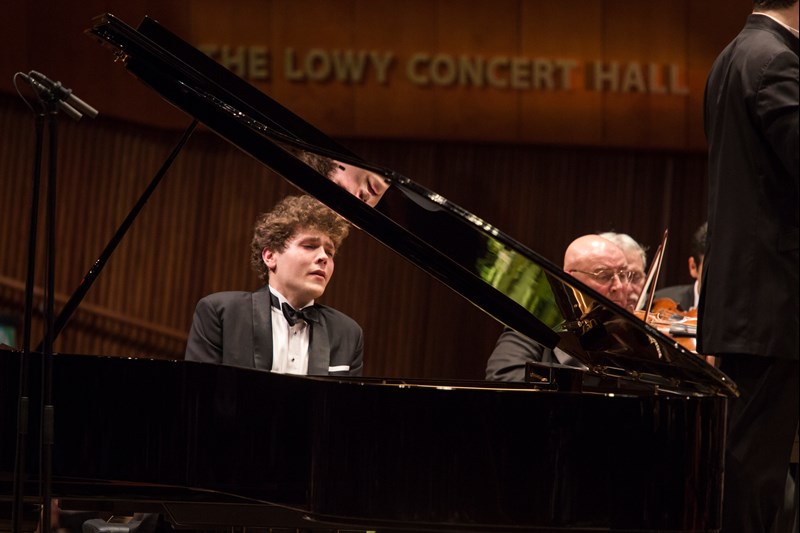
Szymon Nehring (photo: Michael Pavia)
Zvi’s final year should have been marked by the 16th Rubinstein Competition. But with Covid19 in full sway it was decided to postpone by a year - for only the second time in the Rubinstein’s history - and instead hold a digital piano festival. The centrepiece was a livestreamed recital series of 12 young pianists, all national award-winners, performing at the Buchmann-Mehta School of Music’s Clairmont Hall, alongside special streamed recitals from former winners such as Boris Giltburg, discussion panels and videos of classic Rubinstein competitions from the past. It was a success, streamed by International Piano magazine and the Haaretz newspaper, and, as it turned out, has paved the way for this year’s, far grander and more ambitious, digital offerings - with the entire competition to be streamed online.
For the first time, making a virtue of necessity, the Rubinstein will be held in various countries around the world, with only the final two rounds planned to all take place as usual in Tel Aviv. Instead, mindful of travel difficulties during the time of Covid, the preliminary rounds will occur in London, New York, Beijing, Potsdam and, of course, Tel Aviv. Contestants will go to whichever of these cities is easiest for them (with possibilities held out for other locations if absolutely necessary), where their performances will be filmed, ready to be streamed for the public and, of course, the jurors. The plan is then for the finalists to go to Israel for the last two rounds to perform in front of a live audience (also, of course, streamed) in a succession of chamber music works, and concertos with the Israel Camerata Jerusalem and finally, the Israel Philharmonic Orchestra. A total of 36 young pianists will compete, 11 women and 25 men, aged 20-33, representing 17 countries (the highest numbers are from Russia, with six, China and South Korea with five apiece, three from Israel and the same from Ukraine, and the others from the US, UK, Georgia, Japan, Greece/Venezuela, Slovenia, Poland and France).
Music-lovers can buy their tickets and watch the streams from home, wherever in the world that might be - with digital advantages including the possibility to select preferred camera views (for instance, watching just the competitor’s hands if they so wish). The first rounds will be streamed from 1st April - 10th April, while the final rounds can be seen from 29th April - 1st May (so allowing the finalists time for any travel complications). In-between there will be panel discussions, commentaries and audience-members will be able to ‘meet the jury members’ live online - the jury itself, led by Vardi, boast an impressive array of artists and pedagogies, among them Yefim Bronfman, Menahem Pressler and Ewa Poblocka.
Cohen is proud of a clutch of other initiatives to enrich and deepen the audience experience. So, for instance, five well-known Israeli pianists will each give lectures analysing the competitor-performances that audiences will have just watched (something that is made more effective by having pre-recorded performances to which the lecturers can refer). ‘The idea is to provide some tools to give people a way to specify the inner life of a performance, to see how musicians understand music.’ says Cohen. Viewers, indeed, will be invited to vote for an ‘audience favourite’ from round two.
Cohen has seen many changes in all his years with the Rubinstein. He has seen the positive difference to Israel’s musical life made by the huge wave of immigration from Russia from the late 1970’s; he has noted the numerical shift in gravity among competitors from the West to the East. Yet, in all the years of the Rubinstein, this 16th edition is by far the most transformed. But in its transformation it will reach people wherever they may be, and that makes Cohen happy. And in that same transformation it still remains true to the founding principles - of excellence and development of the finest young talent - that Arthur Rubinstein himself so loved. So, in a way, it stays the same. And that should make everyone happy.
For details about how to watch the Rubinstein Competition online, and to purchase tickets, visit https://arims.org.il/ji/schedule-2021/
